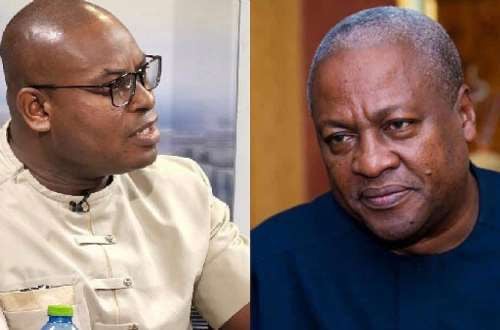The New Patriotic Party (NPP) has launched a scathing attack on the ruling National Democratic Congress (NDC), accusing them of exacerbating the very economic hardships they pledged to alleviate. Richard Ahiagbah, the NPP’s National Communications Director, argues that the NDC’s campaign promises to reduce the high cost of living have proven hollow, with the current administration implementing policies that directly contradict their pre-election rhetoric. Ahiagbah contends that instead of easing the financial burden on Ghanaians, the NDC has overseen a period of escalating costs, leaving citizens worse off than before. He highlights the NDC’s campaign pronouncements, emphasizing their commitment to improving the economic well-being of Ghanaians, and juxtaposes these promises with the current reality of increased hardship. Ahiagbah suggests that the NDC’s actions in government have exposed the insincerity of their campaign pledges, painting a picture of a party that has reneged on its commitments to the electorate.
Ahiagbah further claims that the NDC’s own communicators are struggling to defend the government’s “unpolishable” record, suggesting that even within the party, there is a recognition of the administration’s failings. He argues that the NDC’s attempts to portray their performance in a positive light are faltering due to the undeniable evidence of worsening economic conditions. This internal struggle, Ahiagbah posits, underscores the extent of the government’s mismanagement and the difficulty in justifying their policies to the public. The NPP spokesperson contends that the NDC’s efforts to spin their narrative are ultimately futile in the face of the tangible hardships faced by ordinary Ghanaians.
The NPP spokesperson specifically points to the recent increases in utility tariffs as a key example of the NDC’s broken promises. He notes that while the government has implemented a 10% increase in both base pay and the minimum wage, these gains have been completely eroded by the subsequent hikes in electricity and water tariffs, which stand at 14.75% and 4.02%, respectively. Ahiagbah questions the logic of touting a marginal reduction in the e-levy while simultaneously imposing significantly larger increases on essential utilities. This, he argues, demonstrates a fundamental disconnect between the government’s pronouncements and the actual impact on citizens’ pockets.
Furthermore, Ahiagbah criticizes the NDC for failing to fulfill its promise to scrap the COVID-19 levy. He emphasizes that despite the declared end of the pandemic, Ghanaians continue to bear the burden of this tax, which the NDC had pledged to remove. This unfulfilled promise, according to Ahiagbah, further highlights the NDC’s lack of commitment to easing the financial strain on the population. He questions the rationale behind maintaining a tax specifically designed for a now-passed crisis, suggesting it represents an unnecessary and unfair burden on Ghanaians.
Ahiagbah’s criticisms paint a picture of an NDC government that has not only failed to deliver on its campaign promises but has actively worsened the economic situation it pledged to improve. The NPP’s communication director argues that the NDC’s actions have demonstrably increased the cost of living, contradicting their pre-election rhetoric. The continued imposition of the COVID-19 levy, coupled with the sharp increases in utility tariffs, serves as evidence, according to Ahiagbah, of the NDC’s disregard for the economic well-being of Ghanaians.
In summary, the NPP accuses the NDC of a blatant betrayal of the public trust, arguing that their actions in government have directly contradicted their campaign promises. The increases in utility tariffs, despite a modest increase in wages, coupled with the continued imposition of the COVID-19 levy, are presented as clear examples of the NDC’s failure to alleviate the high cost of living. Ahiagbah’s statements represent a strong condemnation of the NDC’s economic policies, portraying them as detrimental to the well-being of ordinary Ghanaians and a stark departure from the party’s pre-election commitments.














